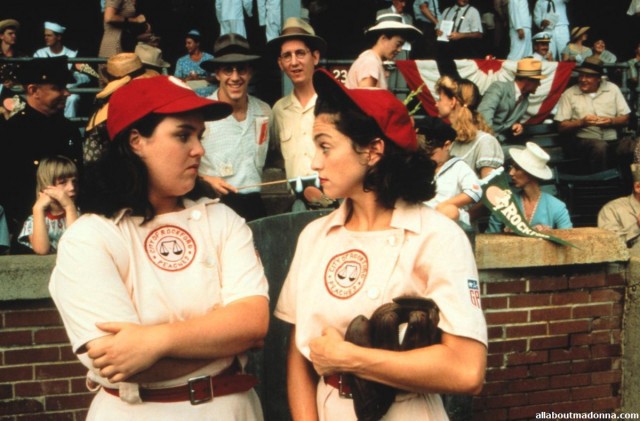A Junior League Of Their Own

I’m very, very fried from my trip to New Mexico this weekend, in part because we listened to the Internet and did not give Babygirl any sleep-inducing medicine for either nighttime plane ride, to or from. “How dare you even consider drugging your child?” was the Internet’s aghast consensus, and wimp that I am, I let myself be shamed by strangers instead of listening to my mother. She’s more old-school: “Benadryl,” she had told me decisively. “Or scotch.”
Anyway, one highlight of the trip was hanging out with my always busy sister-in-law, who never fails to surprise me. I asked her what she was up to and, among other things, she said, “Junior League.”
I goggled at her and she giggled at me. It’s not what you might think, she said. It’s not super WASP-y.
That is what I was thinking, I confessed. That it was all teas and cotillions.
No, she told me, and she started describing the volunteer literacy work she and the other members of her chapter did in LA. “I wanted to join in New York when I lived there,” she said, “but the dues were ridiculous. They’re more reasonable on the West Coast.”
Because I still must have looked a little skeptical, she reminded me that Eleanor Roosevelt was in the Junior League — one of the first members, in fact, along with founder Mary Harriman.
Franklin Delano Roosevelt reminisced that when he first began to court Eleanor, she surprised him with an invitation to visit the settlement house where she worked as a Junior League volunteer. She showed young Franklin a side of New York he had never seen before, and he credited Eleanor’s activism as the inspiration that awakened his social consciousness and led to their lifelong partnership and commitment to social change.
Franklin Roosevelt rewarded Mary Harriman later in life with a prestigious appointment as one of the highest-ranking women in his Administration.
Eleanor Roosevelt is a total trump card, as my sister-in-law well knows. I admitted defeat and listened with admiration to my SIL’s stories of volunteering and training to be a community leader.
According to the Wall Street Journal, the Junior League has been trying to rehab its reputation for a while now:
After losing a fifth of its members in a decade, the organization has decided to retool to remain financially viable and, perhaps more importantly, relevant to the next generation of female volunteers. It has reframed its mission to focus on encouraging women to be civic leaders and have an impact on their communities.
After 100 years, the group is planning to change the way the organization recruits, retains and serves members. “Members are our most important resource, both in advocating for the issues the group cares about and generating the bulk of the organization’s revenues,” Ms. Beekman said.
Local chapter membership dues can range from $75 to several hundred dollars a year, including a $35 fee for international dues.
That’s not bad — cheaper than most sororities, anyway.
Am I totally out of the loop? Has Junior League been a respectable way for diverse populations to do good work for a while now, or do you too associate it with the Emily Gilmores of the world? Likewise, if you’re a member of it, or of some equivalent org, and want to chat about it, let me know!
Support The Billfold
The Billfold continues to exist thanks to support from our readers. Help us continue to do our work by making a monthly pledge on Patreon or a one-time-only contribution through PayPal.
Comments